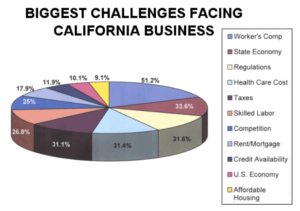Vampire Meetings and How to Slay Them

Vampire Meetings and How to Slay Them
By Peg Kelley
Meetings can be like mythical vampires – sucking the life out of intelligent and creative people. And sucking the funds out of businesses. Unfortunately, there are too many of these meetings in business today.
A UCLA study said the “typical” meeting includes nine people. If you have nine people in a meeting room for one hour, you have consumed one entire workday – plus some.
What about the dollars associated with this? Say the average salary of meeting attendees is $40,000. Their hourly pay is about $20.00. Nine people for one hour costs $180.00. Not bad, right?
But consider the implications. People don’t spend just one hour a year in meetings. In a 3-M online survey in 1998, people reported spending between one and 1.5 days per week in meetings. They also said 25% to 50% of those meetings was wasted. Being conservative, let’s think 25% of one day’s worth of meetings…that’s two hours. Per week. Times nine people. 18 hours a week. Times $20.00 an hour. 18 times 20 times 48 weeks = $17,280.00.
This is a conservative number. For only nine people. How many people are in your company? And how much time do they spend in meetings each week? These figures do not include the preparation and debriefing time, their benefits, meeting and travel expense or, worst of all, opportunity cost. Really, what could these people have been doing for your business if they weren’t tied up in ineffective meetings week after week?
So, what can we do about these vampire meetings?
Start by looking at your regularly scheduled meetings. What is the objective? Are they really necessary? Can most of the agenda be covered via paper or email? Do you need all the people there for every meeting? Or can some attend only occasionally?
Once you know this meeting must be held with these (fewer, I hope) people, then set a meeting objective for each time. And share it with people before and at the start of the meeting. Post it on a flipchart if possible. Typical meeting objectives include: Generate ideas to overcome our funding problem, Find innovative ways to cut the budget without cutting service, Gain understanding of our new retirement plan, Get updates on three key projects, etc. The advantage of having a clear objective for your time together is that people will police themselves and stay on-topic. And if they don’t, you can point to the objective and say something like, “We have 30 minutes left and still have to achieve this goal for this meeting.” Knowing and sharing the objective is a wonderful way to manage the group’s energy and focus.
Another way to keep your meetings productive and efficient is to manage the people dynamics. One of the most common meeting problems is when one person talks and talks and others never get to say a word. If possible, have a meeting facilitator whose job is, among other things, to make sure everyone gets appropriate airtime. When you do not have the luxury of a content-neutral facilitator, then the chairperson must assume responsibility for managing the group. It’s easier than it may seem. In this situation of one dominant personality, the chairperson can enforce brevity for all. Explain that you want everyone to give his or her thoughts in a sentence first and then elaborate on it. So, when that individual starts his/her comments with an unfocused beginning (“20 years ago, I worked at a company and we had something similar happen, except there were some differences like there was this woman named Ann….”), you have the permission to step in and say, “Could you give us your point in a sentence first, Paul, and then some background?” Being even-handed in implementing this approach is very important, obviously.
Another technique to help in this situation is to paraphrase the speaker’s point. Interrupt when he or she takes a breath and say, “So you’re saying that…” and when they agree, you turn to the rest of the group and ask if anyone has anything to add or a different perspective. Thus you use the power of paraphrasing to help the speaker be concise while taking back the control of the group. You might even just jump in when the speaker takes a breath and say, “Good point, Paul. Does anyone else have a different perspective?” and turn your eyes to others.
How you close a meeting is very important. Much like mythical vampires who fade away at sunrise, many meetings tend to sputter to a close when the allotted time runs out. We’ve all been in meetings where the chairperson is trying to set up another meeting while attendees bolt for the exits.
For a meeting that energizes attendees, do this instead. Five minutes before the ending time, call a halt to discussion and revisit each of the agenda items and state what was decided. Then identify next steps with as many specifics as possible. “Sandy, you said you would investigate prices for printing a brochure, right? When can you have this done?” Also set the time and place for the next meeting and tell participants what they can expect from you before then (notes from this meeting, an agenda for the next one, an interim email, etc.).
By pointing out what has been accomplished in the meeting, identifying next steps, and setting the next meeting (not to mention ending on time!), you will create a sense of momentum and people will feel the time they spent in the meeting was productive.
Like a wooden stake, these tips will slay pale, unproductive vampire meetings and replace them with lively, effective ones. Attendees might actually look forward to your future meetings! And you will, too.
Peg Kelley, MBA, has been a professional facilitator for over 30 years. She has authored a booklet – 39 Secrets for Effective and Enjoyable Meetings – and publishes other resources for making meetings work. All are available at her website: http://www.meetingtoolsandjewels.com
We hope you found this article about “Vampire Meetings and How to Slay Them” helpful. If you have questions or need expert tax or family office advice that’s refreshingly objective (we never sell investments), please contact us or visit our Family office page or our website at www.GROCO.com. Unfortunately, we no longer give advice to other tax professionals gratis.
To receive our free newsletter, contact us here.
Subscribe to our YouTube Channel for more updates.

Alan Olsen, is the Host of the American Dreams Show and the Managing Partner of GROCO.com. GROCO is a premier family office and tax advisory firm located in the San Francisco Bay area serving clients all over the world.
Alan L. Olsen, CPA, Wikipedia Bio

GROCO.com is a proud sponsor of The American Dreams Show.

The American Dreams show was the brainchild of Alan Olsen, CPA, MBA. It was originally created to fill a specific need; often inexperienced entrepreneurs lacked basic information about raising capital and how to successfully start a business.
Alan sincerely wanted to respond to the many requests from aspiring entrepreneurs asking for the information and introductions they needed. But he had to find a way to help in which his venture capital clients and friends would not mind.
The American Dreams show became the solution, first as a radio show and now with YouTube videos as well. Always respectful of interview guest’s time, he’s able to give access to individuals information and inspiration previously inaccessible to the first-time entrepreneurs who need it most.
They can listen to venture capitalists and successful business people explain first-hand, how they got to where they are, how to start a company, how to overcome challenges, how they see the future evolving, opportunities, work-life balance and so much more..
American Dreams discusses many topics from some of the world’s most successful individuals about their secrets to life’s success. Topics from guest have included:
Creating purpose in life / Building a foundation for their life / Solving problems / Finding fulfillment through philanthropy and service / Becoming self-reliant / Enhancing effective leadership / Balancing family and work…

MyPaths.com (Also sponsored by GROCO) provides free access to content and world-class entrepreneurs, influencers and thought leaders’ personal success stories. To help you find your path in life to true, sustainable success & happiness. It’s mission statement:
In an increasingly complex and difficult world, we hope to help you find your personal path in life and build a strong foundation by learning how others found success and happiness. True and sustainable success and happiness are different for each one of us but possible, often despite significant challenges.
Our mission at MyPaths.com is to provide resources and firsthand accounts of how others found their paths in life, so you can do the same.
How to Successfully Sell Your Company
How to Successfully Sell Your Company Tips for Privately-Held Business Owners By Jason Pfannenstiel Be clear about your motivation for selling. Reason for the sale is among the first questions buyers will ask. Your personal and professional reasons should be more than simply wanting to cash out for a certain magical dollar value. Before you…
15 Ways to Improve Your Cash Flow Now
15 Ways to Improve Your Cash Flow Now By Howard Fletcher Cash management theory and techniques are well understood and practiced by treasury managers in large corporations. They use sophisticated models and cash management tools that allow them to predict and manage cash. Many of these are beyond the reach or need of small companies.…
Survey: Biggest Challenges Facing California Businesses
Survey: Biggest Challenges Facing California Businesses A recent survey was conducted to determine what business owners in California thought the biggest challenges facing their businesses were. Out of 1500 questionnaires, these are the percentage of respondents who checked off a box next to each challenge. (Respondents were allowed to select more than one box, so…



